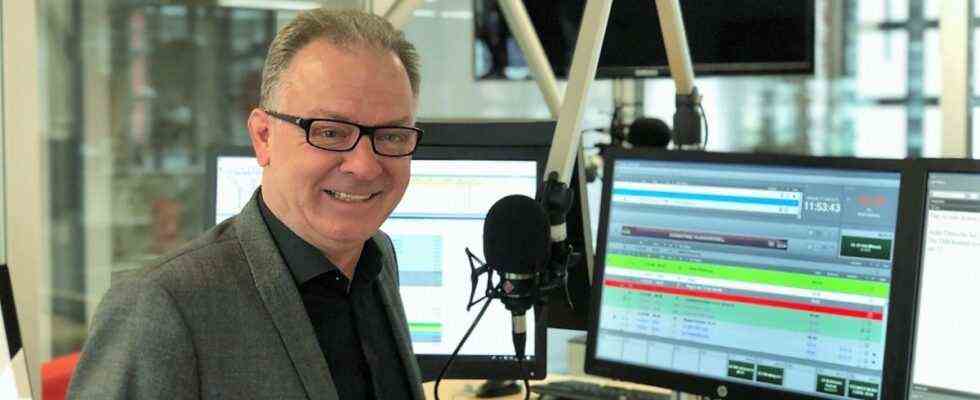The biggest plus that local newsrooms are often given is that they are close. The biggest criticism of local newsrooms is that they to be close. Editor-in-chief Georg Rose from Radio Wuppertal says he deliberately does not live in the city from which he broadcasts. He wants to keep a certain distance so that he can speak clear words when necessary. He was asked three times to join a service club. “I would probably get good topics there, but I would handcuff myself because then I know some people too well.”
When the WDR drives up with its well-equipped OB vans, it and its reporters just look in amazement, says Rose. Ultimately, however, they are not so locally anchored and not so flexible. “If I decide we’re doing a special now, I’ll need my people to play along, but I don’t have to ask anyone about me.” Their flexibility paid off during the flood. Radio Wuppertal proved with enormous commitment: Local journalism has great strengths even in times of crisis.
On Wednesday evening, after the local news, the team said goodbye at half past seven. A short time later, Rose alerted the editors after a call from the town hall: The dams are full, the Wupper is overflowing its banks. Eight of them prepare a special broadcast. The morning team Jens and Nadine return to the studio, Rose takes over the coordination, the news team provides up-to-date information from home. Three people are on duty outside, collecting voices.
Thousands of messages arrive on the Whatsapp channel, otherwise there are 150.
Thousands of messages accumulate on the Whatsapp channel, where 150 messages usually come in a day. The editors explain this with a leap of faith from the region. “We have built up a good standing in Wuppertal, perhaps also because we uncovered one or the other corruption scandal in the city administration,” says Rose.
They want to provide information for two to three hours. Then it’s off to bed, that’s initially planned. When the fire brigade declares that it is a flood that has not happened in 500 years, the dimensions become clear. And Radio Wuppertal remains on the air. “You don’t expect that from private broadcasters. But we’re not doodle radio. We’re journalists, not DJs. We understand our craft,” says Rose.
The power is off from three in the morning. The radio house can only be received via VHF. You turn off the lights. Everything that draws electricity unnecessarily is unplugged. A mixer, two computers and the broadcast studio – that’s all that’s in operation. At five o’clock in the morning it comes to an absolute disaster in the old factory building on the Wupper. The emergency generator has been used up. The editorial staff of Radio Wuppertal has to admit defeat after hours of special broadcast – at least until 11.30 a.m. when the city connects the electricity again.
The Wuppertal and their radio were surprised by the flood Wednesday night. At 7.10 p.m. the Wupperverband announced that a critical level would not be reached. Rose and his team are now researching how such a false prognosis came about.

